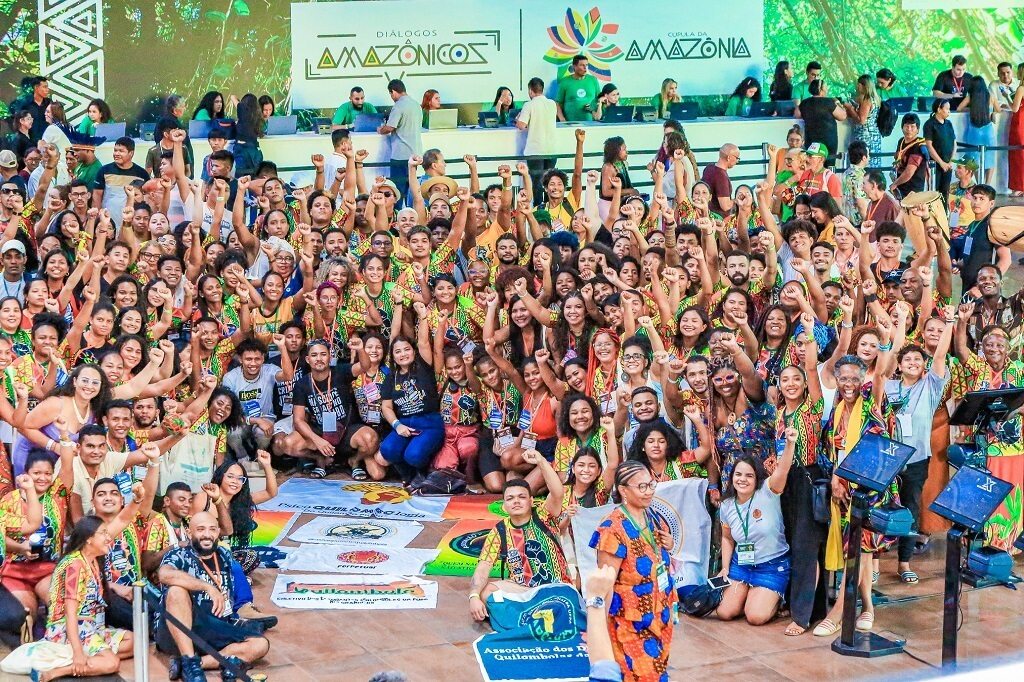From August 3 to 6, in Belém, Pará, the Brazilian government held the Amazon Dialogues, a series of events aimed at civil society, intended to mobilize organizations that are working to help conserve and restore the Amazon biome, in the run-up to the Amazon Summit, a meeting of the presidents of the Pan-Amazon countries. Taking advantage of the opportunity, various organizations organized side events on related subjects.

In all, there were five main sessions, four cross-cutting sessions and dozens of parallel activities self-organized by collectives, social movements, academics and other groups. Fundo Vale representatives participated in five discussions. The one titled “The Amazon Green Belt,” organized by Systemiq, featured Márcia Soares, Fundo Vale’s partnerships leader.
Patrícia Daros, Vale’s director of nature-based solutions, took part in two debates: “Financial, Regulatory and Business Environment Mechanisms to Accelerate the Transition to a Low-Carbon Economy,” organized by Systemig, and “The Role of the Business Sector in Developing Inclusive Natural Climate Solutions in the Pan-Amazon Region,” organized by the Brazilian Business Council for Sustainable Development (CEBDS). She also spoke at a workshop called “Finance for a Zero Deforestation Amazon: Financing Positive Change in the Amazon,” organized by Global Canopy and the Science Panel for the Amazon (a side event).
In the same week, Guilherme Oliveira, the scientific director of the Vale Institute of Technology (ITV), took part in a panel discussion titled “New Forms of Entrepreneurship and the Future of the Amazon: The Importance of a Strengthened Impact Ecosystem,” organized by the Coalition for Impact, PCT Guamá, the Amazon Entrepreneurship Centre and Cesup.
The Fundo Vale team also connected with various partners and representatives of the federal and state governments, and attended discussions on topics such as REDD+, forest restoration, the bioeconomy, conservation areas, tools for conserving habitat, eradicating slave-like labor, food security, the energy transition, socio-bioeconomies, land tenure reform, the carbon market, forest conservation, biodiversity conservation and impact investing.
“We saw a great deal of movement from society, including indigenous leaders, riverside communities, civil society movements and NGOs, discussing high-priority issues in the Amazon,” says Soares. “Our participation showed that we are relevant to this biome’s conservation and recognized by the sector as an organization that makes an important contribution.”
In partnership with ITV, Vale and investment firm JGP, Fundo Vale also organized a field trip to Belém to highlight existing structures that are competent and active in the Amazon bioeconomy. Manioca, Oakberry and ITV itself were visited by a group made up of organizations with different profiles that seek to boost social and environmental businesses in the region.
The team also took part in some side events held during the Amazon Summit, from August 7 to 10. They included the launch of the Green Coalition (a movement led by the Inter-American Development Bank, and involving other public and development banks, to launch credit and development initiatives aimed at keeping the forest intact, valuing its peoples and achieving a just transition to a low-carbon economy) and a celebration of the Amazon Fund’s 15th anniversary, featuring a presentation of its results and prospects.
Fundo Vale was also present at the Pan-Amazon Biodiversity Dialogues (organized by WWF-Brasil, TNC-Brasil, CEBDS, CI-Brazil, UNDP, UNEP and the Amazon Cooperation Treaty Organization), the Innovation, Finance and Nature Seminar (organized by the Amazon Consortium and the Inter-American Development Bank), and the launch of CAR 2.0 and the Regional Intelligence Module (a partnership between Semas-PA and TNC).
